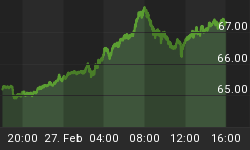The 19th century belonged to the UK, the 20th century belonged to the US and it appears that the 21st century may belong to China. A consistent theme in the emergence of a new global power is a young population with a large and growing pool of domestic savings and a focus on investing in the capital base of the economy rather than consumption. The world's western economies find themselves heavily in debt with deteriorating demographics (our populations are aging and our birth rates are low) and economies skewed towards consumption. We are accruing ever-greater liabilities to cover vast social, medical and retirement programs that we currently do not have the workers or more importantly the high growth economies to pay for. It has been said that "demographics are destiny'. Unfortunately, rather than face these issues, our governments are attempting to fix our manifest problems by accelerating the consumption friendly policies that were largely responsible for getting us into this situation in the first place. As an example of this, the US Federal funding gap is growing rapidly. Over the last six years:
- unfunded obligations increased approximately 50% from US$79 trillion to US$114.7 trillion; but
- revenue rose approximately 12%.
The US government is now in the position of increasing its liabilities four times faster than its tax receipts. This is a trend being repeated throughout the developed world. The US Federal Reserve recently disclosed that it purchased half of the newly issued US Treasuries in the second quarter of 2009 - all of which would have been purchased with newly created money - direct debt monetization. Mayer Rothschild once said "Permit me to issue and control the money of a nation, and I care not who makes its laws."
Investors must be alive to the growing divergence between the economies of the west and those in the emerging world and position themselves accordingly. As Jim Rogers says "The price of a commodity will never go to zero. When you invest in commodities futures, you're not buying a piece of paper that says you own an intangible piece of company that can go bankrupt."
We believe that the way to benefit from long-term Chinese growth is to invest in what China needs in politically stable parts of the world. That gives you the best of both options - first world political risk and transparency combined with emerging world growth rates.















